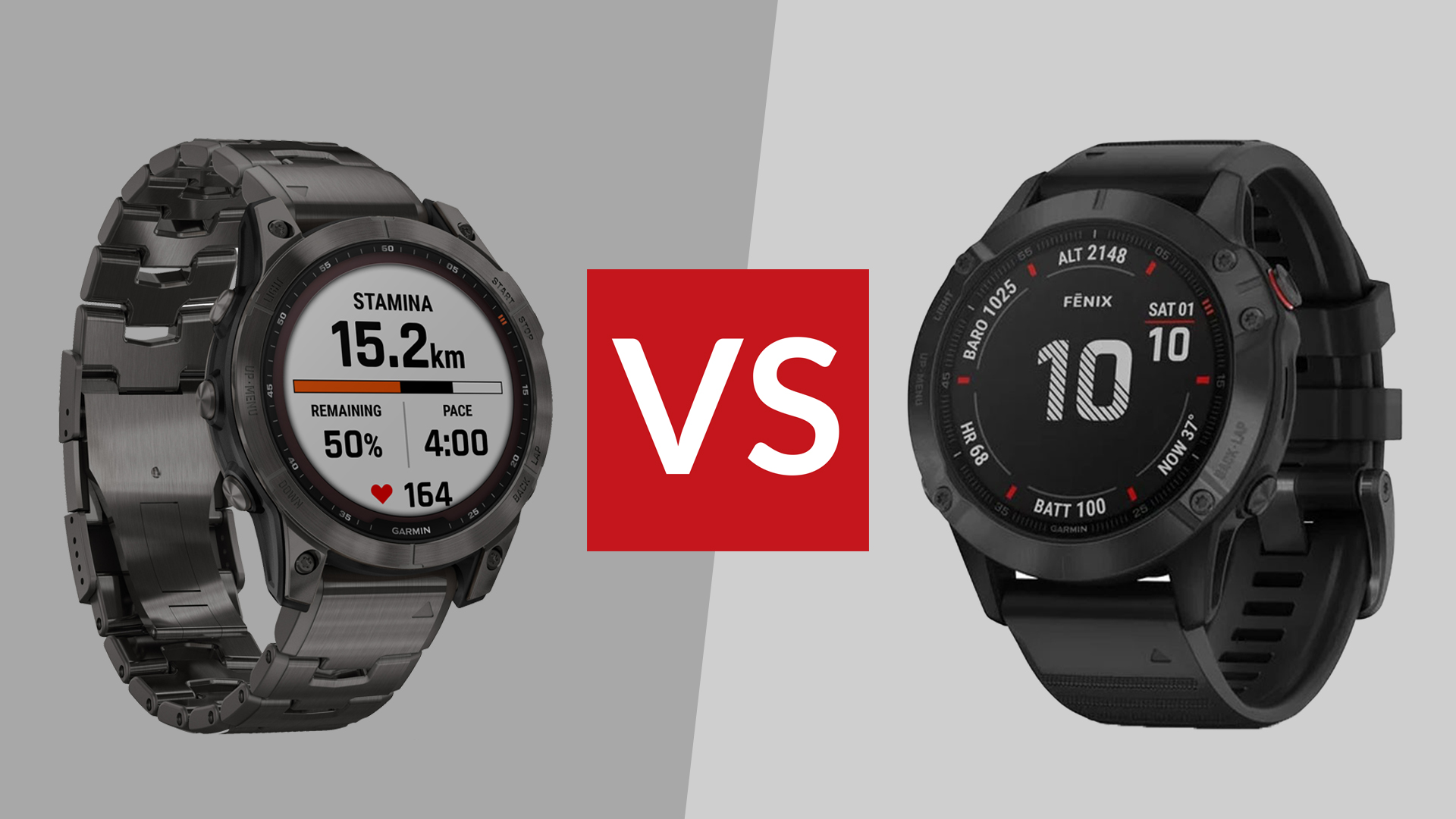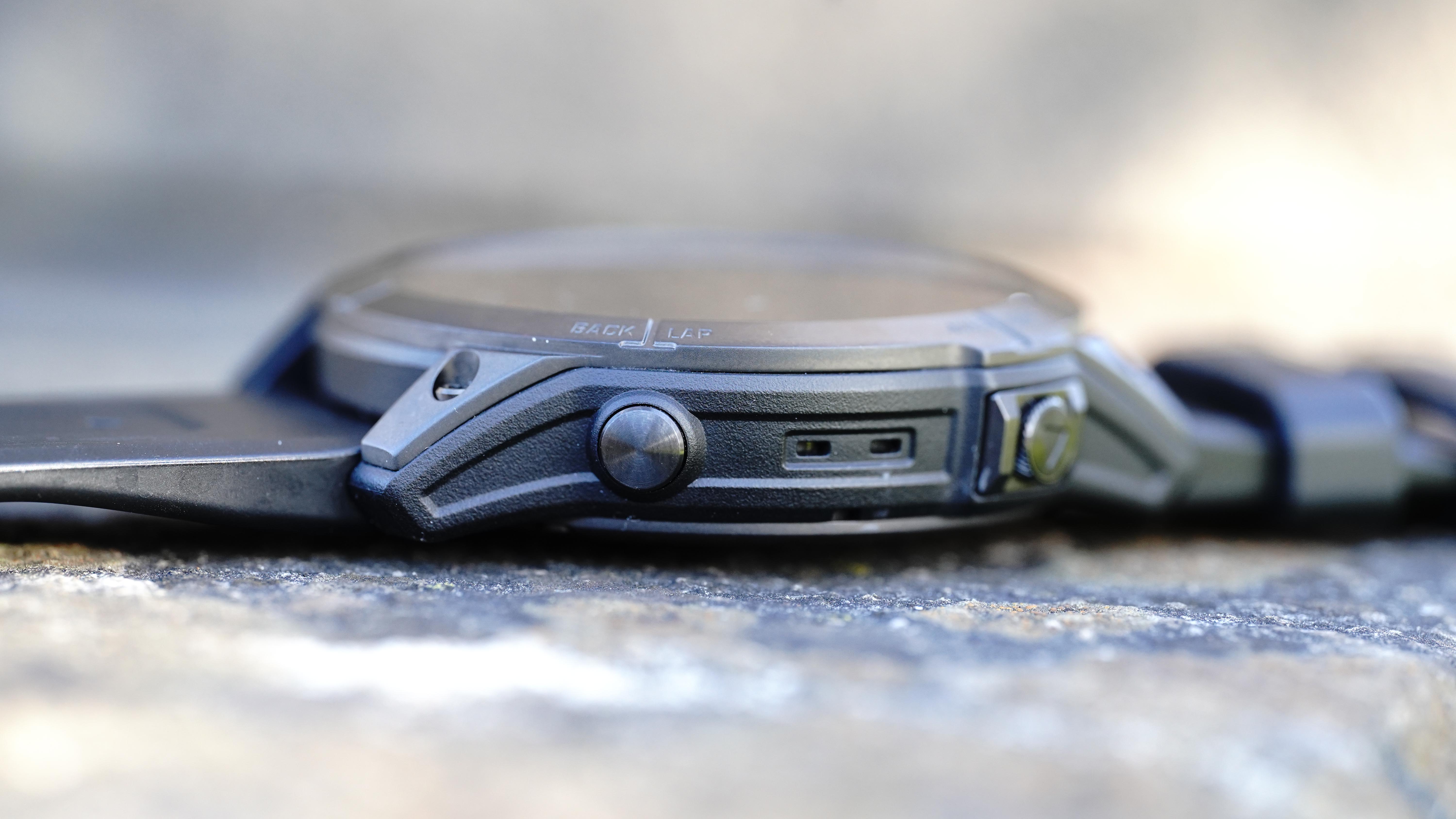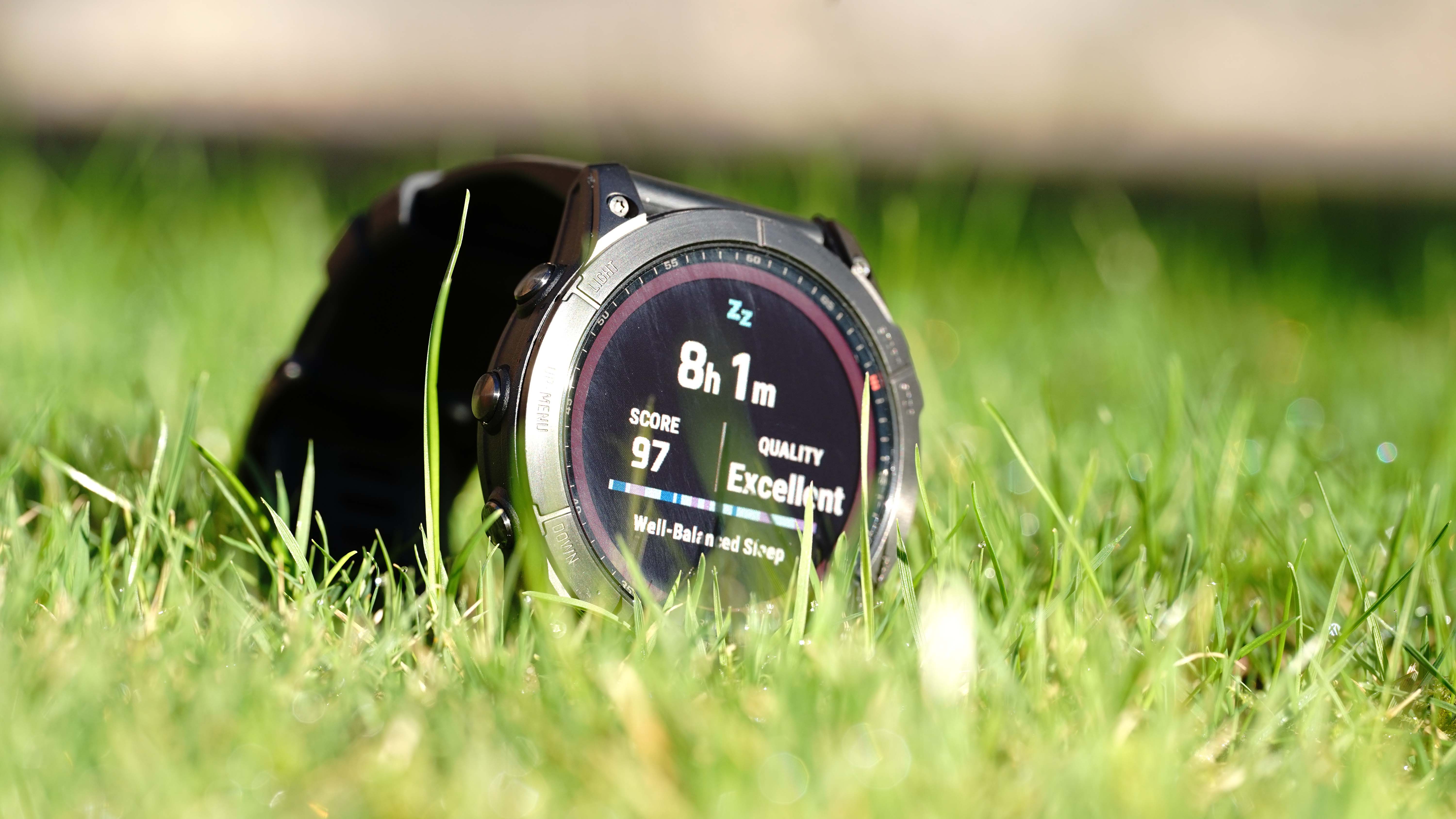Garmin Fenix 7 vs Fenix 6: Is Garmin’s latest and greatest really worth the upgrade?
We find out which wearable comes up trumps in a head-to-head battle

Garmin has today taken the wraps off its latest and greatest multisport smartwatch, the Fenix 7. But how does this new and improved Fenix watch stack up against its predecessor, the Fenix 6? Are the new features enough to warrant paying the higher price tag? Is it worth upgrading if you’re already a Garmin Fenix user? These are the questions we’re going to answer in this Fenix 7 vs Fenix 6 head-to-head feature.
Sporting the same reliable five-button interface Garmin users have come to know and love, the company’s next-generation outdoors flagship smartwatch, the Garmin Fenix 7, builds on the design format of the Garmin Fenix 6 while boasting a host of innovative new features.
There’s a responsive touch screen (a first for the Fenix line), advanced solar charging for extended battery life and multi-continent mapping - all integrated into a tough housing with protective button guards and metal-reinforced lugs.
Which is worth your money more: the Fenix 7 or the Fenix 6? More importantly: which is the best Garmin watch? Let the battle commence!
[Side note: we’ll be comparing the top, most premium versions of the Fenix 6 (Sapphire Pro) and Fenix 7 (Sapphire Solar) to make things a little easier.]
- Henry Cavill's favourite fitness gadget? It's a running watch (but not a Garmin)
Garmin Fenix 7 vs Fenix 6: Price and availability
Launched on 18 January 2022, the Fenix 7 can be purchased as a standard model (non-solar), Solar or a Sapphire Solar edition. Prices start at £599.99 for the standard model. That goes up to £689.99 for the Solar model, and then from £779.99 for the most premium offering, the Sapphire Solar edition.
The Fenix 6 was launched over two years ago in August 2019. At present, the Fenix 6 starts at £399 for the most standard version without the pro features and sapphire display. That jumps up to £449.99 for the pro features (for example ski maps and the ability to preload music), and then £549.99 for the top-range model with pro features, sapphire display and solar charging.
Get all the latest news, reviews, deals and buying guides on gorgeous tech, home and active products from the T3 experts
That’s a difference of £200 for the most standard version in each generation and a £230 difference between the most premium models.
All models are available to buy at Garmin US, Garmin UK and Garmin AUS and other major online retailers such as Amazon and Currys.
WINNER: Fenix 6

The Garmin Fenix 7 has an updated physical design with screws placed on the lugs
Garmin Fenix 7 vs Fenix 6: Design
If you place both the Fenix 6 and Fenix 7 side by side, you might wonder why we’re even bothering to compare the design of these two watches. At first glance, both devices look identical. We doubt a Garmin employee would be able to tell you off the bat which is which.
Still, design isn’t just about aesthetics, so there’s plenty still to talk about here. And it’s also a good opportunity to moan about how Garmin is a creature of comfort when it comes to the design of its wearables. Then again, if it ain’t broke…
The design enhancements Garmin has introduced in the Fenix 7 relate more to user experience than looks, so require a little inspection. For one, the display is now touch-activated, a feature we haven’t seen on a Fenix model before now. There will be a lot of Garmin fans that are happy about that.
While display size is the same between the two wearables (1.2-inch), the Fenix 7 is noticeably lighter, weighing 73g while the Fenix 6 comes in at 83g. This is thanks to the use of more premium materials in the Fenix 7 like titanium, which is strong and durable but super lightweight.
WINNER: Fenix 7

The Garmin Fenix 6 used to the benchmark against which the accuracy of other multisport watches are measured
Garmin Fenix 7 vs Fenix 6: Features and performance
Both the Fenix 6 and the Fenix 7 are built for rugged outdoor fitness. However, the latter has been given a bit of an upgrade by Garmin and redesigned for ultra-durability with reinforced lugs and metal button guards. While the Fenix 6 has proven to withstand some pretty extreme environments in our reviews, the Fenix 7 sounds like it could do an even better job.
When it comes to Solar, only the most expensive, top-range Fenix 6 model sported solar-powered features and even then, didn’t tout a hard-wearing sapphire display. However, with the introduction of Sapphire Solar models in the Fenix 7 range, users don’t have to choose between solar capabilities and the scratch-resistant sapphire lens as they had done previously.
On top of this, Garmin has improved the solar harvesting capability up to 200% in smartwatch mode for the Fenix 7. This updated design means the watch can maximise solar surface area for increased efficiency, with the new smartwatch going even longer between charges, boasting a projected battery life of up to a whopping five weeks in smartwatch mode and five days in GPS mode.
By contrast, the Fenix 6 gives users up to 14 days or 16 days with solar in smartwatch mode, and 36 hours or 40 hours with solar in GPS mode.
WINNER: Fenix 7

The Garmin Fenix 7 is more versatile and capable than its predecessor; a real winner!
Garmin Fenix 7 vs Fenix 6: Verdict
As you can see, the Fenix 7 has won most rounds in our head-to-head battle, for obvious reasons: it’s packed full of new features, is lightweight and is now also touch-enabled. While both the Fenix 6 and Fenix 7 are great options for fitness enthusiasts, we think the Fenix 7 has enough new and innovative features to warrant spending the extra cash to get one of the best smartwatches on the market right now.
However, if you’re on a budget the Fenix 6 is still a great choice. Costing around £200 less for the equivalent model whale having many similar features (mainly just lacking the touch display), it’s got a lot going for it and will prove a worthy outdoors smartwatch that will stand the test of time.

Lee Bell is a freelance journalist and copywriter specialising in all things technology, be it smart home innovation, fit-tech and grooming gadgets. From national newspapers to specialist-interest titles, Lee has written for some of the world’s most respected publications during his 15 years as a tech writer. Nowadays, he lives in Manchester, where - if he's not bashing at a keyboard - you'll probably find him doing yoga, building something out of wood or digging in the garden.
